
Praise for
The JANE AUSTEN Remedy
Ruth Wilson is proof that Jane Austen is a way of thinking, of being, of loving. She is kind but honest, gentle but unyielding, both pragmatic and romantic.
Cassie McCullagh, co-host of ABC Radio Nationals The Bookshelf
The Jane Austen Remedy is a memoir, a guide to living a full and intelligent life, a work of thoughtful literary criticism, and also feels like an extended chat with a Jane Austenreading friend. Dr Ruth Wilson shows how re-reading Jane Austens novels helped to cure her malaise of the spirit. As she reveals the personal healing that Austens books bring, she also discusses their lessons for us allhow to find and value true friends, how to understand parents, how to balance feeling and reason, how to learn to love ones self and develop empathy for others, and how to grasp at second chances. Elegantly and incisively written, full of insight and wisdom, moving and inspiring, this is a book you want to start reading again, as soon as you have finished. I feel grateful to have played a small part in its genesis, and feel honoured to give it pride of place in my Jane Austen collection.
Susannah Fullerton, oam, frsn, President of the Jane Austen Society of Australia
This thoughtful, provocative book offers a window into a reading life and the ideas that have shaped a curious mind over more than eighty years. Books can make us better, Wilson urges, in this prescription for attentive, empathetic reading. The Jane Austen Remedy may just be the cure for what ails us.
Olivia Murphy, author of Jane Austen the Reader
In this enticing book, Ruth Wilson has emulated Jane Austen in transforming her life experiences and insights into an art form. Anchoring her memoir in her reflections on life as an ardent reader of Austens novels, the author shows how reading, introspection, imagination, wit and wry discernment can shape our lives in unforgettable ways.
Professor Roslyn Arnold, author of Empathic Intelligence
First published in 2022
Copyright Ruth Wilson 2022
All rights reserved. No part of this book may be reproduced or transmitted in any form or by any means, electronic or mechanical, including photocopying, recording or by any information storage and retrieval system, without prior permission in writing from the publisher. The Australian Copyright Act 1968 (the Act) allows a maximum of one chapter or 10 per cent of this book, whichever is the greater, to be photocopied by any educational institution for its educational purposes provided that the educational institution (or body that administers it) has given a remuneration notice to the Copyright Agency (Australia) under the Act.
Allen & Unwin
83 Alexander Street
Crows Nest NSW 2065
Australia
Phone:(61 2) 8425 0100
Email:
Web:www.allenandunwin.com

ISBN 978 1 76106 598 9
eISBN 978 1 76106 416 6
Set by Bookhouse, Sydney
Cover design: Emily ONeill
Cover artwork: Adobe Stock
This memoir is dedicated to Jane Austen, her novels and her heroines.
They have given me unexpected delights of heart and mind throughout a long reading life.
 memoir of any sort can be a revelation to the writer as well as to the reader. The experience of writing becomes part of the story, a creative act that might be considered both brave and foolhardy. It is possible that the relationships I examine in this reading memoir will be misunderstood. It may be that at times my memory falters. So it has been helpful to meand might be useful to readersto recall the warning issued by the narrator of Jane Austens novel Emma: Seldom, very seldom, does complete truth belong to any human disclosure; seldom can it happen that something is not a little disguised, or a little mistaken.
memoir of any sort can be a revelation to the writer as well as to the reader. The experience of writing becomes part of the story, a creative act that might be considered both brave and foolhardy. It is possible that the relationships I examine in this reading memoir will be misunderstood. It may be that at times my memory falters. So it has been helpful to meand might be useful to readersto recall the warning issued by the narrator of Jane Austens novel Emma: Seldom, very seldom, does complete truth belong to any human disclosure; seldom can it happen that something is not a little disguised, or a little mistaken.
Perfect happiness, even in memory, is not common
JANE AUSTEN, EMMA
 was approaching sixty when questions about what it means to be happy assumed a special significance in my life, setting me on a new path that led to a careful re-reading of Jane Austens six novels. On a crisp winter day in 1992 I was sitting in my car, waiting impatiently at a traffic light; without warning the red circle started to spin crazily, and again without warning I was hurtled into a vortex of incomprehension. I managed somehow to make my way home and climb the stairs to my apartment, where I lay in a darkened room for twenty-four hours. The following day the condition was diagnosed as Menieres syndrome; the symptoms include hearing loss, nausea and vertigo.
was approaching sixty when questions about what it means to be happy assumed a special significance in my life, setting me on a new path that led to a careful re-reading of Jane Austens six novels. On a crisp winter day in 1992 I was sitting in my car, waiting impatiently at a traffic light; without warning the red circle started to spin crazily, and again without warning I was hurtled into a vortex of incomprehension. I managed somehow to make my way home and climb the stairs to my apartment, where I lay in a darkened room for twenty-four hours. The following day the condition was diagnosed as Menieres syndrome; the symptoms include hearing loss, nausea and vertigo.
The experience was disconcerting and left me shaken; but more disconcerting still was my experience a few weeks later, at a surprise party that had been arranged for my birthday. I entered a room to find sixty people covering their faces with shining silver masks. I realised that behind the masks there were many good friends and loving members of my family, but as they clapped and cheered I was overcome by a strange antipathy. As the scene dissolved into a silvery nightmare, I felt like a character in Jean-Paul Sartres novel Nausea; overcome by a sensation that was palpably physical and eerily metaphysical, too. I was shifting in and out of my body as I went through Austenian motions of civility and courtesy. I greeted guests and made conversation, I responded to kind words, but I was in some place else. I was watching myself and wondering who I was. In a revelatory surge, I had stumbled into a moment of truth: I was out of love with the world and I was not happy.
I am often compelled to revisit that existential turning point. It was awful in the sense that I am filled with awe whenever I remember it: the awe of experiencing the astounding connection between body and soul. Because I think that my body was telling me that my soul, however such an entity is conceptualised, was ailing. My physical symptoms represented a state of mind; I felt insufficiently loved, less than happy, and touched by grief: for myself, for what I felt I had not achieved, for the years that lay ahead.
But how to explain it? I had lost no one. I had reached the age of sixty with my family intact and my days filled with projects that interested me. It might seem that my life, like that of Jane Austens heroine Emma, united some of the best blessings of existence. And yet, I was experiencing something more devastating than the distress and vexation that Emma encounters on her way to self-knowledge. I felt utterly lost. I sought professional help and was comforted by the assurance that Menieres syndrome sometimes mimics depression. Medication was prescribed, I gave up eating salt, and I resumed my busy routine.
On the surface, life continued to be ordinary. I managed to function well enough on a number of community committees and as a consultant for the implementation of classroom oral history programs, despite intermittent symptoms. When a family legacy came my way, I bought a small cottage in the Southern Highlands, a two-hour drive from Sydney. I reminded myself that, even as a child, I had always enjoyed my own company. Aware that I had spent my adult life deferring, like so many women of my generation, to the assumed male authority of the household, I decided to put the cottage in my name alone.
Next page
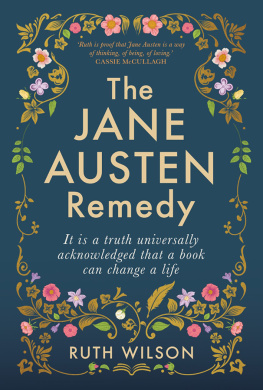

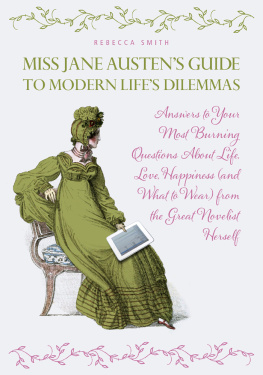
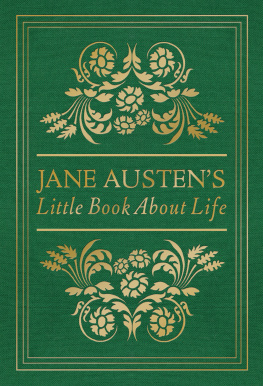
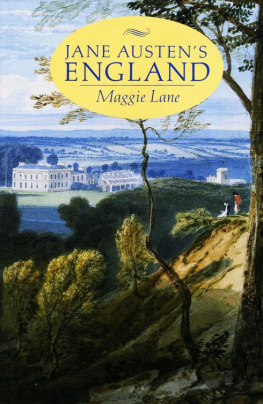
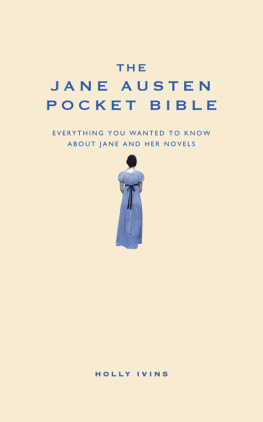
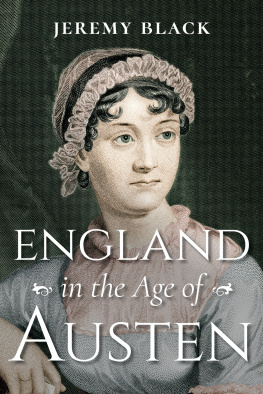
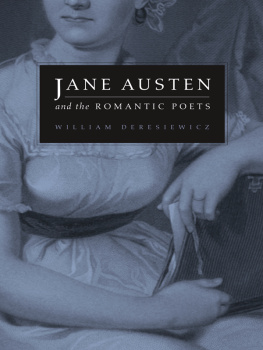
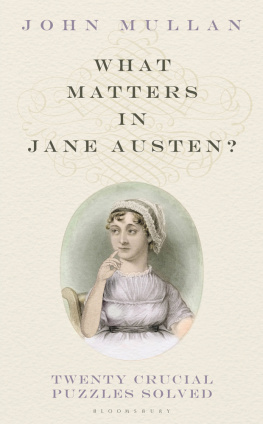


 memoir of any sort can be a revelation to the writer as well as to the reader. The experience of writing becomes part of the story, a creative act that might be considered both brave and foolhardy. It is possible that the relationships I examine in this reading memoir will be misunderstood. It may be that at times my memory falters. So it has been helpful to meand might be useful to readersto recall the warning issued by the narrator of Jane Austens novel Emma: Seldom, very seldom, does complete truth belong to any human disclosure; seldom can it happen that something is not a little disguised, or a little mistaken.
memoir of any sort can be a revelation to the writer as well as to the reader. The experience of writing becomes part of the story, a creative act that might be considered both brave and foolhardy. It is possible that the relationships I examine in this reading memoir will be misunderstood. It may be that at times my memory falters. So it has been helpful to meand might be useful to readersto recall the warning issued by the narrator of Jane Austens novel Emma: Seldom, very seldom, does complete truth belong to any human disclosure; seldom can it happen that something is not a little disguised, or a little mistaken. was approaching sixty when questions about what it means to be happy assumed a special significance in my life, setting me on a new path that led to a careful re-reading of Jane Austens six novels. On a crisp winter day in 1992 I was sitting in my car, waiting impatiently at a traffic light; without warning the red circle started to spin crazily, and again without warning I was hurtled into a vortex of incomprehension. I managed somehow to make my way home and climb the stairs to my apartment, where I lay in a darkened room for twenty-four hours. The following day the condition was diagnosed as Menieres syndrome; the symptoms include hearing loss, nausea and vertigo.
was approaching sixty when questions about what it means to be happy assumed a special significance in my life, setting me on a new path that led to a careful re-reading of Jane Austens six novels. On a crisp winter day in 1992 I was sitting in my car, waiting impatiently at a traffic light; without warning the red circle started to spin crazily, and again without warning I was hurtled into a vortex of incomprehension. I managed somehow to make my way home and climb the stairs to my apartment, where I lay in a darkened room for twenty-four hours. The following day the condition was diagnosed as Menieres syndrome; the symptoms include hearing loss, nausea and vertigo.